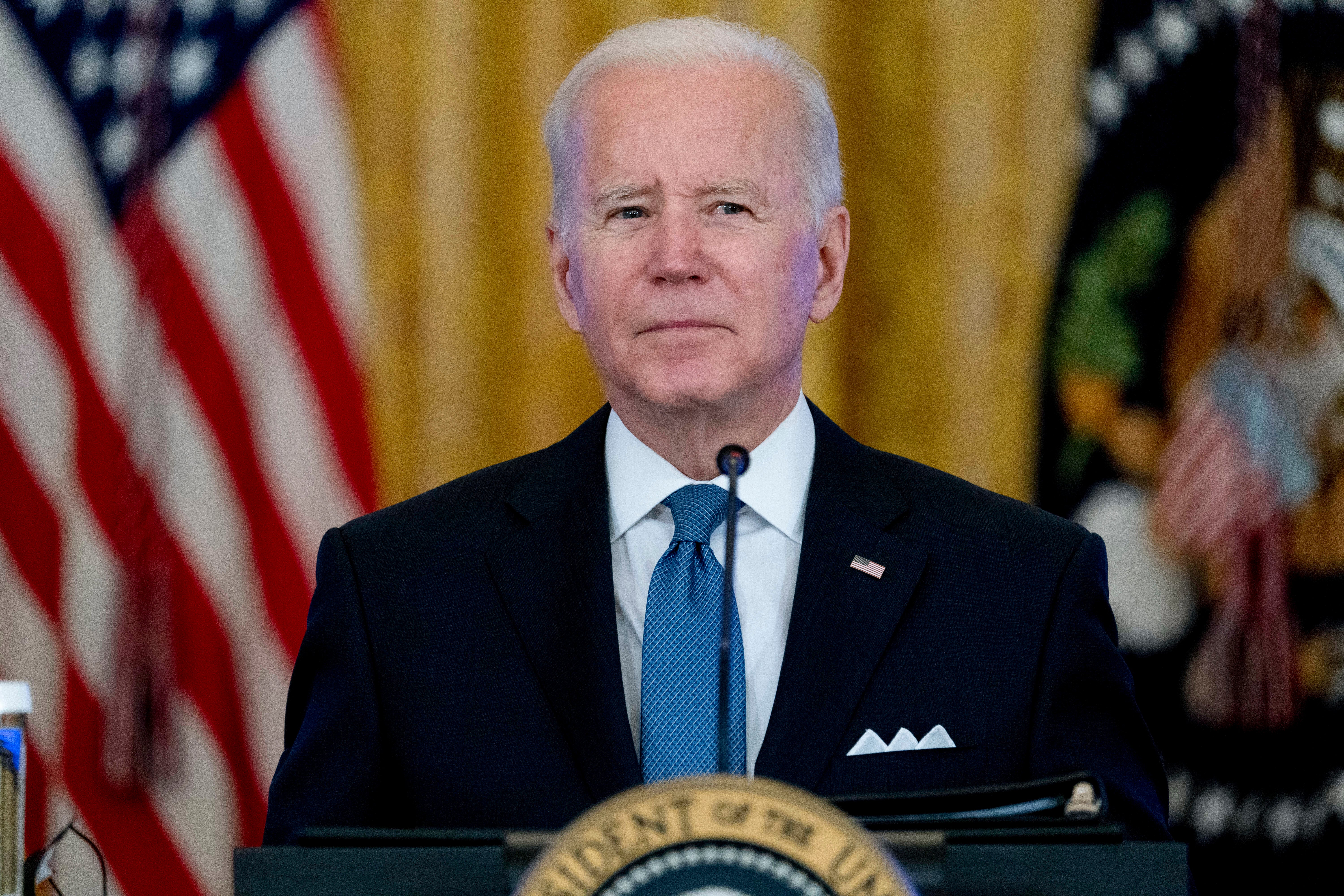Biden has long been preparing for a Supreme Court pick
President Joe Biden has already narrowed the field for his Supreme Court pick

President Joe Biden has already narrowed the field for his first Supreme Court pick.
Biden said as a presidential candidate that if he were given the chance to nominate someone to the court, he would make history by choosing a Black woman. And word on Wednesday that Justice Stephen Breyer plans to retire should give Biden that opportunity.
“As president, I’d be honored, honored to appoint the first African American woman. Because it should look like the country. It’s long past time,” Biden said in February 2020 shortly before South Carolina’s presidential primary.
The White House has reiterated Biden’s campaign pledge since his election.
Almost all recent Supreme Court picks have been federal appeals judges. And since Biden took office in January 2021, he has worked to dramatically expand his options in that potential candidate pool by nominating five Black women who are currently sitting on federal appeals courts, with three more nominations pending before the Senate.
Selecting a Black woman for the lifetime post on the nation's highest court would be historic. It would mark the first time four women would sit together on the court and the first time two of the court’s nine justices would be Black. Justice Clarence Thomas is the court’s only Black justice and only the second in history after the man he replaced on the court, Thurgood Marshall.
Biden now has the chance to show Black voters increasingly frustrated with a president they helped to elect that he is serious about their concerns, particularly after he has been unable to push through voting rights legislation.
At the same time, Breyer’s replacement by another liberal justice would not change the ideological makeup of the court. Conservatives outnumber liberals by 6-3, and Donald Trump s three nominees made an already conservative court even more conservative.
With the larger push to diversify the judiciary — Trump largely appointed white men during his time in office — Biden's team has consulted with the NAACP Legal Defense Fund, Black caucus members, Rep. Jim Clyburn, D-S.C. and influential Democratic lawyers.
Even with a narrowed field and the court's majority not to be altered, there's no guarantee a nominee will sail through the Senate.
Senate Majority Leader Chuck Schumer, D-N.Y., said Wednesday that Biden’s nominee “will receive a prompt hearing in the Senate Judiciary Committee and will be considered and confirmed by the full United States Senate with all deliberate speed.”
But Republicans in particular remain upset about Justice Brett Kavanaugh's contentious 2018 hearing. Democrats have the 50 votes plus a tiebreaker in Vice President Kamala Harris that they need to confirm a nominee. Nonetheless, the party has also been unable to get all its members on board for Biden's social and environmental spending agenda or to move forward with a voting rights bill.
Biden is uniquely aware of the challenges that come with a confirmation. As a senator, he served as chairman of the Judiciary Committee, overseeing six Supreme Court confirmation hearings from 1987 to 1995, including Breyer’s.
And one person who will be central to Biden’s process is chief of staff Ron Klain, a former Supreme Court law clerk and chief counsel on the Senate Judiciary Committee. While serving as an associate White House counsel for President Bill Clinton in 1993, Klain was summoned to breakfast with Justice Byron White, for whom he had clerked, only to be surprised with a resignation letter for Clinton.
Ever since Biden suggested he would choose a Black woman if he had the chance, two names have seemingly topped any list of potential nominees:
—Ketanji Brown Jackson, 51. She attended Harvard as an undergraduate and for law school. President Barack Obama nominated her to be a district court judge, and Biden elevated her to the U.S. Court of Appeals for the District of Columbia Circuit. Early in her career, she was also a law clerk for Breyer.
—Leondra Kruger, 45, a justice on the California Supreme Court. A graduate of Harvard and Yale’s law school, she served as a law clerk on the high court before arguing a dozen cases before the court as a lawyer for the federal government. But Kruger, whose mother is Jamaican, has also been described as a moderate, which could be a tough sell for some liberal Democratic senators.
Two other Black women Biden appointed to federal appeals courts are also seen as contenders: Holly Thomas, a longtime civil rights lawyer he named to the U.S. Court of Appeals for the 9th Circuit and Candace Jackson-Akiwumi, a former public defender he named to the U.S. Court of Appeals for the 7th Circuit.
J. Michelle Childs, who has been nominated but not yet confirmed to serve on the U.S. Court of Appeals for the District of Columbia Circuit, is another option. Childs, currently a federal trial court judge in South Carolina, is a favorite of Clyburn, who made a crucial endorsement of Biden just before that state's presidential primary.
Biden could also choose someone from outside the judiciary, though that seems less likely. One contender would be the head of the NAACP Legal Defense and Educational Fund, Sherrilyn Ifill, 59. She has headed the fund since 2013 and has announced she is stepping down in the spring.
The court has had three women on it for more than a decade, since 2010, when Obama named Justice Elena Kagan to the court to replace the retiring John Paul Stevens. Kagan joined Obama’s other nominee, Justice Sonia Sotomayor, the court’s first Latina justice, and Justice Ruth Bader Ginsburg. When Ginsburg died in September 2020, Trump’s choice of Amy Coney Barrett to fill her seat kept the number of women on the court at three.
Bookmark popover
Removed from bookmarks